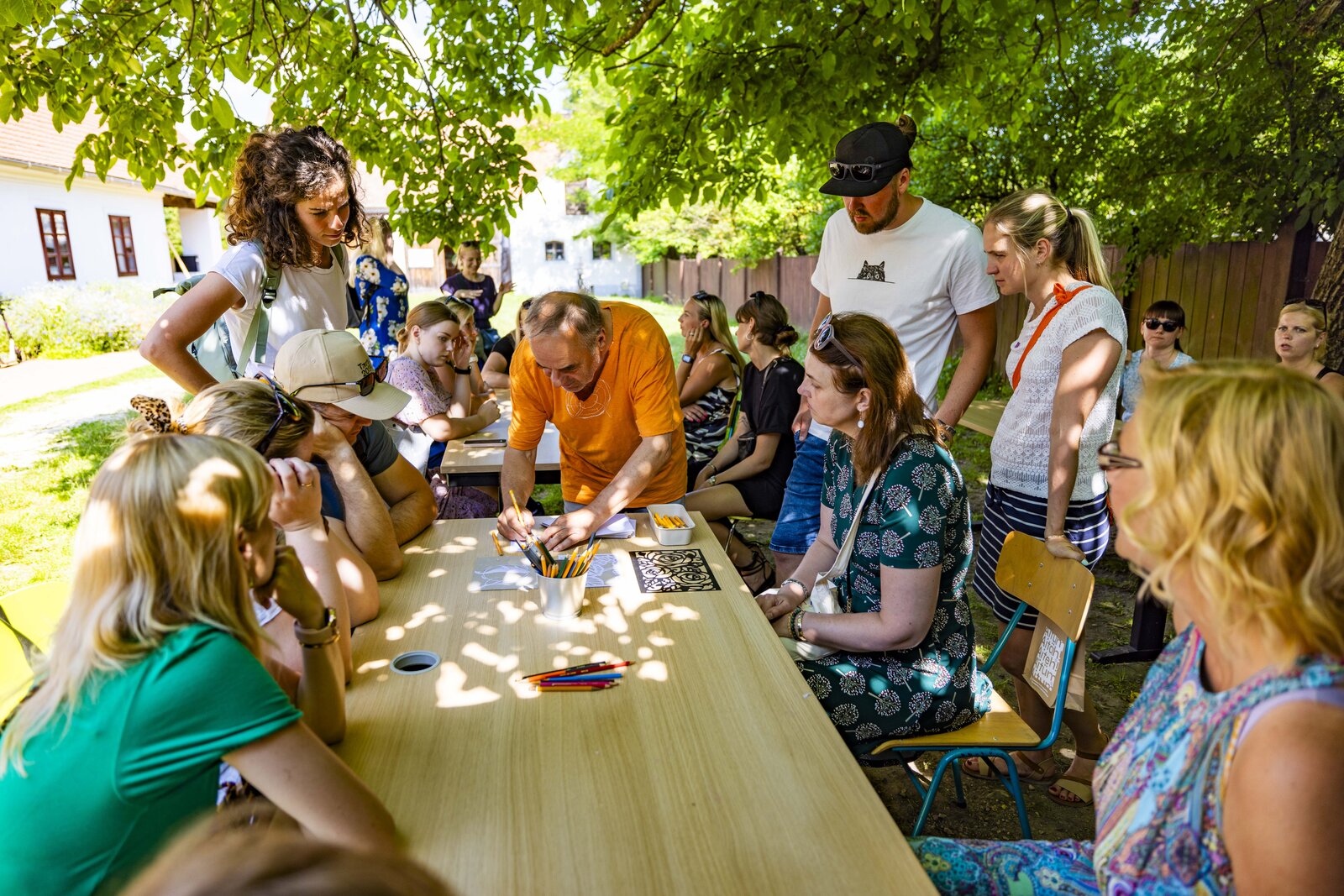We hosted regional experts from Tartu
During the week of our Halftime event, we hosted a delegation of 27 people from Veszprém's twin city Tartu, and the South Estonia region. Tartu will be the European Capital of Culture in 2024 and, like us, they were thinking in terms of a regional approach. As part of the programme, Mayor Gyula Porga and colleagues from our Capital of Culture team shared some thoughts on the European Capital of Culture experience. The guests were also introduced to the ECoC regional venues and events and had the opportunity to get a taste of the atmosphere of the programme year.
The Estonian group arrived on the Saturday of our Halftime programme, where they were immediately immersed in the festive atmosphere of our city, dancing to the music of electronic world star Lost Frequencies.
On the next day they visited Káptalantóti, where they saw a typical Hungarian farmers' market, after that Mindszentkálla, one of our CultNet venues, Kálikapocs, where they got a closer look at how to go beyond the concept of a restaurant and sustain a cultural venue for events over the long term, bringing the community together in smaller, regional settlements. In the afternoon, our guests continued their tour to Szentantalfa. Here they were introduced to the rich gastronomy of the Balaton Uplands through a wine tasting. Later they attended one of the venues of our Ruin Concert series in Kővágóőrs, which is also a typical example of how seasonal, small-scale programmes can be brought to the region. It is also a good example of how sustainability can be achieved in the countryside and how the 'zero waste' movement can be implemented: Stay small, stay sustainable!

On the third day of their visit, the Estonian colleagues had the opportunity to meet with the Mayor of Veszprém, Gyula Porga, as well as our Programme Development Director, Friderika Mike, and our Cultural Project Manager, Krisztián Nagy, who is the custodian of our CultNet project. They provided useful advice and good practices to the curious attendees. The group visited Magyarpolány, the creative colony and artists' base in Kor-társ, for the rest of the day. They got a glimpse of how the centre works, offering year-round art camps and workshops for young and old. The rest of the day was spent visiting the recently opened KryptonItt, Krypton House Multicultural Experience Centre, the former Krypton factory in Ajka with its new features, and the reading cabin near Csingervölgy, which is another example of how nature-friendly concepts and culture can be integrated into one project.
We hope that our Estonian colleagues found the study tour to our region useful, and they will be able to use the good practices and experiences they have seen in our region in their own ECoC projects. We wish them good luck in preparing and implementing their regional approach and hope that many of them will visit us again in the future!
